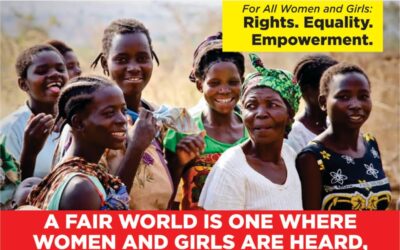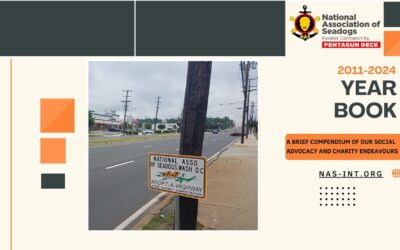When elections that should result in the emergence of legitimate parliamentarians (MPs) and a president degenerate into a situation where the two major parties accuse each other of ethnic genocide, a concerned observer must, of necessity, examine other root causes than the immediate mutual accusation of rigged elections.
But the first point to make about the crisis of governance in Kenya is to condemn in no uncertain terms the mindless killing of over 600 Kenyans at the hands of the perpetrators of ethnic genocide/ethnic cleansing and the brutal members of the security forces.
When the crisis is over, all those found guilty of murderous acts, especially those who organized the roasting of women and children in a church in Eldoret, must be punished for their heinous crime.
It should also be mentioned that over 250,000 people have been displaced.
Story of Kenya’s December 27, 2007 elections
Presidential and parliamentary elections were held on Wednesday, December 27, 2007.
The results of the parliamentary elections as announced at polling stations and reported in the media were not different from what the Electoral Commission of Kenya (ECK) declared as the final results that were officially published (gazetted) on Sunday, December 30.
Significantly, about 20 ministers lost their seats. 207 MPs-elect have emerged and fresh elections are to be held in only three constituencies. There are only a handful of challenges to results pending in the courts.
(The remaining 12 of the 222-member Parliament have been nominated by the major parliamentary party groups).
By Tuesday, January 15, a Speaker of the Parliament emerged after three ballots that saw the candidate of the opposition victorious over the governing party’s candidate: 104 to 101 votes – another strong evidence of the narrow margin between the two feuding groups.
It is striking that while the opposition Orange Democratic Movement (ODM) with 99 MPs won over only five MPs from the smaller parties, the rest voted with president Kibaki’s Party of National Unity and its allies.
In contrast to the non-controversial collation and final results of the parliamentary elections, discrepancies and divergences emerged towards the end of the collation of the results of the presidential elections.
This was specifically in respect of the votes for president Kibaki and the leading opposition candidate, Raila Odinga. (The only other candidate with significant votes came a very distant third). Odinga’s ODM as well as many national and international observers requested ECK to re-check the votes before announcing a winner.
But the ECK chair proceeded to declare candidate Kibaki president-elect with a little over 200,000 votes margin: 4.5 million to Odinga’s 4.3 million votes. Kibaki was promptly sworn in for his second term.
Then, protests and demonstrations snowballed into violence, with murderous dimensions that appear to be linked to other causes than the frustration and anger of persons who felt cheated by the result announced by the ECK.
Within a few days of the political violence that followed, five of the 20-person member ECK voiced dissent from the result announced by their chairman and the chairman himself publicly admitted that he was not sure that president Kibaki won the presidential election.
Sadly, too, leaders of the two main parties engaged in incendiary language, including the ethnic genocide accusations.
Furthermore, the ECK, the opposition party, and sections of civil society raised doubts about the ability of the courts to act as impartial arbiter in the controversy.
There were also reports of some civil society groups (notably the vernacular media) that acted more like “agents provocateurs” than peacemakers.
Root causes of the governance crisis and possible solutions
The following are some governance problem areas that emerge from the story of the elections as summarized above: the intensity of the struggle for the control of the presidency apparently because it controls extensive powers as against the limited powers of parliament (a constitutional issue), distrust of the judiciary, a weak and pliant electoral commission, and civil society groups that mirror the divisions within society.
Above all, there was the problem of leadership failure with government and opposition leadership teams unabashedly accusing each other of ethnic genocide/cleansing.
Not surprisingly, the above governance issues and a few others (notably, the problems of corruption, poverty and unemployment) have been highlighted by individuals and groups within the Kenyan elite that are as informed and sophisticated as any other on the continent.
The following is a selection from the “the proposed way forward” recently published by a group within the elite, the 29-member Kenyan Association of Professional Societies in East Africa: (i) “in a short term, the formation of a negotiated, all inclusive government”;
(ii) “the review of the constitution to come up with a governance structure which promotes inclusiveness and shift from the paradigm of the winners-take-all”;
(iii) more effective and expeditious anticorruption effort;
(iv) “strengthening of national institutions”, including, among others, political parties, the ECK, and the Kenya Anti-Corruption Commission;
(v) “an affirmative action policy …so that areas of Kenya that are disadvantaged are given help”; and
(vi) “a Truth, Justice and Reconciliation Commission to… contribute to a national healing process.”
“The Nation”, ( Nairobi ) January 11, 2008.
Most observers (internal and external) who are familiar with the challenges of good governance in Kenya would agree that almost all of the above proposed “solutions” have been canvassed since multiparty system was introduced in the country in the early 1990s.
It is the will to act that has been lacking. Will the descent to the horrible level of linking electoral competition to ethnic genocide finally lead the political class and the other elite groups to take concrete actions in respect of the above proposed solutions?
To what extent can external facilitators (“mediator” is a misnomer, in my opinion) assist the governance reform process?
The four former presidents from Botswana , Mozambique, Tanzania and Zambia who visited the country in early January probably came to show that they were concerned; they cannot serve as facilitators.
Nor could AU chair, president Kufuor of Ghana, have served as a facilitator during a two-day visit. As some voices inside Kenya have suggested, a national team of facilitators with external support and with a definite timeline (about 12 months?) might be the way to go.
The latest development is the planned intervention of a team of eminent Africans, led by Kofi Anan (former Secretary General of the UN) that is scheduled to begin meetings with government and opposition groups from January 22nd or thereabouts.
The team is expected to help the two antagonistic groups reach agreement on how best to end the political logjam that has caused so many deaths, rendered thousands of Kenyans homeless, and wreaked havoc on the country’s economy.
Lesson for Nigeria
The governance problem areas that have emerged in Kenya are present, in varying degrees, in many of Africa’s emerging democracies, including Nigeria.
Some of the proposed solutions, too, would have relevance, with appropriate adaptations, to many African countries. In the specific case of Nigeria, our own “ethnic pogrom” led to a full-blown 30-month civil war (1967-1970).
More recently, we botched our Truth and Reconciliation Commission and we have been dithering over constitutional review. Furthermore, we are still awaiting the courts to salvage what they can from the contested results of the fraudulent elections conducted by a partisan and incompetent electoral commission.
While there is broad agreement on the agenda for governance reform in the country, the will to act that was manifestly absent under president Obasanjo (with the exception of anticorruption, notwithstanding the taint of selectivity) appears to remain elusive.
The supreme lesson from the electoral competition in Kenya that turned into tragedy because of the neglect of underlying governance problems should be the need for concrete and sensible actions to be taken on our own governance problems before the 2011 elections. Delay will be dangerous.
By Ladipo Adamolekun
Vanguard
Tuesday, January 22, 2008


